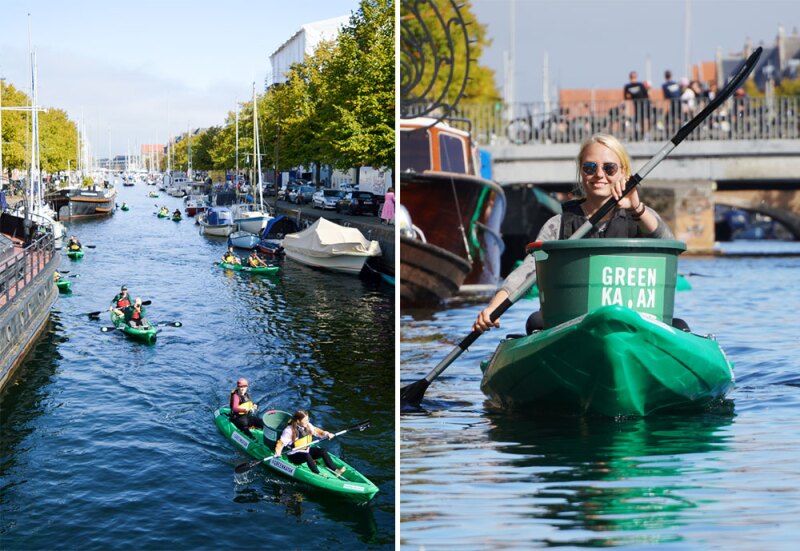A hugely successful initiative by the city of Copenhagen—rewarding eco-conscious travelers with perks—is coming back for a second summer and inspiring other countries to follow suit. The CopenPay program is a system that thanks visitors for making greener decisions, such as taking the train, walking, or biking (the bike-friendly city has four times more bikes than cars), among other eco-friendly activities, such as volunteering with cleanup efforts.
“It’s spreading like rings in the water,” says Mads Ostergaard of Visit Denmark, noting Poland’s interest in replicating the program. “More than 100 destinations have reached out to Copenhagen about the program.”
Denmark, made up almost entirely of islands, is one of the most sustainable and socially responsible countries in the world, recognized for its innovative and progressive approaches to renewable energy and climate change adaptation. It’s home to the cleanest waste-to-energy power plant in the world, CopenHill, which has a ski slope atop the recycled steel, concrete, and aluminum building, and GreenKayak, a nonprofit that lends kayaks for free to those willing to remove trash from the Copenhagen canals as they paddle—to name just two of its eco-friendly initiatives. So it’s no surprise that Denmark’s largest city is now incentivizing visitors to make more eco-conscious travel decisions.
CopenPay, which will run through August 17, is simple yet effective. To participate, check the program’s website for activities and rewards. Then when you want to redeem a perk, just show proof of participation in an eligible activity (flash a train ticket or a photo of yourself cleaning up trash, for example). And in return, each business dishes out a complimentary perk.
This year, the program is running twice as long and with four times the number of attractions to pick from. Options include three new critical additions aimed at reducing greenhouse emissions: rewards for travelers staying in the city for at least four nights or arriving by electric vehicle or train (in partnership with railway companies Deutsche Bahn in Germany and Snälltåget of Sweden). Train travel, for example, earns tourists a free community dinner hosted by Junkfood, a charity by Rasmus Munk, whose Copenhagen restaurant Alchemist has two Michelin stars and a Michelin green star.
This summer’s edition of CopenPay also has a focus on reducing crowding by encouraging visitors to get outside the city center to less-traveled destinations. For example, riding a bike or taking public transport will get you free entry into the home of Shakespeare’s Hamlet, UNESCO’s Kronborg Castle, in the coastal town of Elsinore.
Other new discounts and freebies, among 100 different CopenPay experiences, run the gamut from sustainability lectures at Copenhagen University to yoga sessions under the palm trees of Crowne Plaza Copenhagen, plus guided tours at Carlsberg Brewery (the underground art space Cisternerne) and the Danish Architecture Center. What’s more, all of last summer’s sponsors carried over, including CopenHill’s ski slope and GreenKayak’s paddling rentals.

The NGO GreenKayak offers free kayaks to Copenhagen residents and visitors—so long as they collect trash from the water along their journey.
Courtesy of GreenKayak
With expectations to far exceed the 5,000 participants and 30 percent increase in bike rentals of last summer, the success of CopenPay speaks volumes about the global shift toward sustainable travel.
“CopenPay helped spark a global conversation about the future of conscious tourism,” says Rikke Holm Petersen, director of marketing, communication, and behavior at Wonderful Copenhagen, the city’s tourism organization.
Denmark has received sustainability awards in the past, and two of its islands, Bornholm and Samsø, were previously named the most sustainable islands by the European Union. Through CopenPay, environmentally conscious Danes are sharing their way of life with visitors. And who doesn’t love a freebie—and knowing you’ve contributed to helping the planet?
This article was originally published in July 2024 and was most recently updated on July 8, 2025 with current information.








